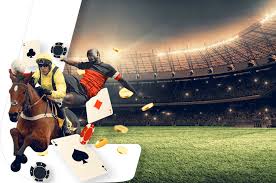How to improve your poker 21

How to Improve Your Poker Game
If you’re looking to elevate your poker skills and increase your chances of winning, you’ve come to the right place. There are countless strategies and tips available to help you become a better player. In this article, we will explore essential techniques and approaches to enhance your game. Don’t forget to visit How to improve your poker Krikya casino for great games and opportunities to practice what you learn.
Understanding the Basics
Before delving into advanced strategies, it’s crucial to have a solid understanding of the basic rules and mechanics of poker. Familiarize yourself with the various types of hands, betting structures, and game formats. Whether you are playing Texas Hold’em, Omaha, or Seven Card Stud, knowing the rules inside and out is the first step to improving your game.
Practice Makes Perfect
One of the best ways to improve your poker skills is through regular practice. Online platforms provide an excellent opportunity to play poker without risking significant sums of money. Start by playing at lower stakes to get comfortable with your strategy and decision-making process. Additionally, consider participating in home games with friends to create a friendly environment for learning.
Study the Game
In addition to practical experience, studying poker theory can significantly enhance your understanding of the game. Reading poker books, watching instructional videos from professional players, and analyzing online articles can help solidify your knowledge. Some recommended titles include „The Theory of Poker“ by David Sklansky and „Harrington on Hold’em“ by Dan Harrington.
Learn to Read Opponents
A critical skill in poker is the ability to read your opponents. This means observing their betting patterns, body language, and general behavior to gain insights into their possible hands. Pay attention to how they react in different situations. Are they aggressive or passive? Do they bluff often? Adjusting your strategy based on your opponents’ tendencies can significantly improve your edge in the game.
Bankroll Management

Effective bankroll management is essential for long-term success in poker. Set a budget for how much money you are willing to invest and stick to it. Avoid playing at stakes that exceed your bankroll limits, as this can lead to unnecessary losses and stress. By managing your funds wisely, you can keep playing and improving your skills without risking financial instability.
Position is Key
Understanding the importance of position at the poker table is vital. Your position relative to the dealer can greatly influence your playing style. Being in a late position allows you to observe how other players act before making your decision. Utilize this to your advantage by playing more hands when you are in a strong position and tightening up when you are out of position.
Patience and Discipline
Patience is a virtue in poker. It’s essential not to play every hand and to wait for optimal opportunities to make your move. Disciplined players know when to fold and when to bet aggressively. Avoid getting caught up in the moment; instead, maintain a long-term perspective focused on improving your game and making the right decisions over time.
Emotional Control
Emotional control is crucial in poker. Many players succumb to tilt, allowing frustration to cloud their judgment and negatively affect their play. To combat this, practice mindfulness and take breaks when needed. Recognizing when your emotions are influencing your decisions can prevent costly mistakes. Stay level-headed and stick to your predetermined strategy.
Review and Analyze Your Play
Regularly reviewing your play can uncover mistakes and areas for improvement. Consider recording your sessions and analyzing your decisions. Look for patterns in your gameplay and identify leaks in your strategy. By critically assessing your performance, you can make targeted adjustments to enhance your skills.
Seek Feedback and Learn from Others
Engage with the poker community to enhance your knowledge and skills. Participate in online forums, join poker clubs, or seek a mentor. Discussing hands with experienced players can offer new perspectives and valuable insights that enhance your understanding and approach to the game.
Conclusion
Improving your poker game takes time, effort, and a willingness to learn. By incorporating the strategies mentioned above, you can steadily progress toward becoming a more skilled and confident player. Remember, the key to success in poker is not just about luck but about understanding the game and making informed decisions. Happy playing!
